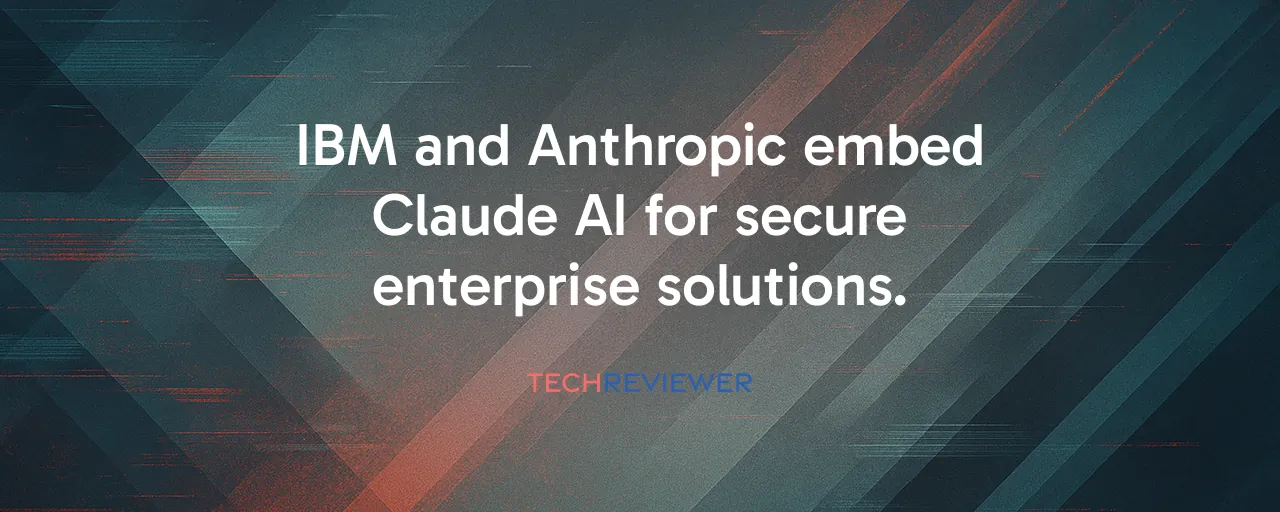A New Era for Enterprise AI
IBM, a titan in enterprise software, has joined forces with Anthropic to embed the Claude large language model into its tools, starting with a cutting-edge integrated development environment. Announced on October 7, 2025, this partnership aims to make AI practical for businesses navigating complex, regulated industries. Combining IBM's expertise in hybrid cloud and governance with Claude's advanced reasoning creates solutions that fit seamlessly into existing workflows.
This collaboration prioritizes real-world needs. Enterprises, especially in sectors like finance and healthcare, demand AI that's secure, compliant, and reliable. Claude's design, with a 200,000-token context window and strong coding capabilities, aligns with these priorities. IBM's decades of experience ensure the technology integrates smoothly with legacy systems, addressing a pain point for 35% of AI leaders who cite infrastructure challenges.
Why Claude Fits the Enterprise Puzzle
Claude's rise in the enterprise space is no fluke. A July 2025 Menlo Ventures study found Claude commanding 32% of the enterprise AI market, surpassing OpenAI's 25%. Its edge comes from features like graduate-level reasoning, scoring 85% on GPQA benchmarks, and a 64% success rate on coding tasks. For developers, this means tackling entire codebases in one go, boosting efficiency without sacrificing quality.
IBM's early adopters, numbering over 6,000, reported 45% productivity gains using the new AI-powered development environment. Beyond speed, this approach embeds governance and security into the process. Claude's Constitutional AI approach ensures customer data isn't used for training, addressing privacy concerns that worry 50% of enterprises expecting data loss from AI tools.
Real-World Wins and Pitfalls
Deloitte's rollout of Claude to 470,000 employees across 150 countries offers a glimpse of AI at scale. Launched just a day before the IBM deal, this deployment relies on a Claude Center of Excellence to guide implementation. Training 15,000 professionals underscores the effort needed to align AI with diverse roles, from accountants to developers. Robust training and clear frameworks are critical for success.
Challenges persist. Deloitte's recent refund to the Australian government for an error-ridden AI-assisted report highlights the risks of rushed deployments. IBM's environment remains in private preview, signaling that broad adoption requires overcoming integration hurdles. With 52% of organizations struggling with data quality and only 20% scaling AI fully, enterprises must navigate a steep learning curve.
Balancing Opportunity and Obstacles
The IBM-Anthropic partnership counters competition from Microsoft and Google, who leverage integrated ecosystems. IBM's watsonx platform, paired with Claude, offers a flexible alternative, supporting multiple models and hybrid cloud setups. This interoperability tackles the 35% of AI leaders citing integration as their top barrier. Competitors like OpenAI, despite a declining 25% market share, benefit from established relationships.
For developers, the benefits include fewer repetitive tasks and faster feature delivery. Concerns linger about skill degradation if AI handles too much. Enterprises also face regulatory scrutiny, with the EU AI Act and privacy laws demanding transparency. IBM and Anthropic's guide for building AI agents addresses these issues, but only 35% of corporate boards have integrated AI oversight, signaling a gap.
What's Next for Enterprise AI
This partnership signals a shift toward practical, experimental AI. Enterprises are moving beyond pilot projects, with spending on large language models hitting $8.4 billion by mid-2025. IBM and Anthropic are betting on agentic AI, where specialized agents handle complex workflows, from coding to procurement. Deloitte predicts 50% of enterprises will adopt such systems by 2027.
The collaboration could expand into healthcare or finance, where IBM's expertise shines. Focusing on governance and interoperability builds trust in regulated sectors. For businesses, AI must fit existing systems and deliver measurable value. With Claude powering 42% of coding workloads, this partnership positions IBM and Anthropic to lead in a market hungry for reliable solutions.
